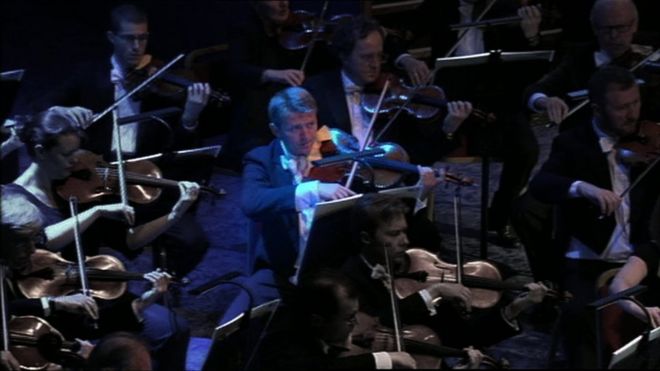BBC News: A viola player who suffered a life-changing hearing injury at a rehearsal of Wagner's Die Walkure in 2012 has won a landmark High Court judgment against the Royal Opera House (ROH).
The case won by Chris Goldscheider has huge implications for the industry and the health and safety of musicians.
It is the first time a judge has scrutinised the music industry's legal obligations towards musicians' hearing.
The ROH said it was "surprised and disappointed" by the judgment.

5 comments:
My only thoughts on this subject are utter shock and aw. These people work in an industry where they are surrounded by noise every day and for it to take this long in order for there to become a significant enough issue that would make people actually do something about it is surprising. when the said "We do not believe that the Noise Regulations can be applied in an artistic institution in the same manner as in a factory, not least because in the case of the Royal Opera House, sound is not a by-product of an industrial process but is an essential part of the product itself." after the ruling made me surprised that they would treat this issue so lightly. The sound and music industry is so dependant on one's ability to hear that an event like this means utter ruin for those that encounter it. It will indeed make us rethink the way in which we set up and care for our musicians.
I was surprised to read that there were no safety protections for musicians. Since their ears and being able to hear are a crucial part of their ability to do their job, it is hard to understand why they are not protected. While I understand the difference between the sound being a product versus a by-product, I do not see why this should influence safety. Though opera companies might have to rearrange the set up for the pit, it seems worth it to protect the musicians. Since I don’t know much about sound or pit arrangements, I wonder if there is a better way to structure it so that band members are safer. I would be interested to know if the structure of the pit is designed for sonic reasons or if it is based in tradition. Overall, I wish all the best for Mr. Goldscheider and his family and hope he can find peace after this tragedy.
I disagree with the judge on this one. You can’t just arbitrarily make up a medical condition that previously didn’t exist and claim it in court. Where is the expert medical testimony by credible witnesses. One of the biggest differences between our legal system in the U.S. and that of several European countries is that we tend to be critical when it comes to the burden of proof and the presentation of expert evidence. A second fact, which I want to make, is that, um hello, you are a professional musician in an orchestra. There has to be some fault on your part to not take care of your hearing better over all these years. Professional singers do their due diligence to take care of their voice, why are musicians not doing the same. Also, I’m sure that he is not the only 6th Viola to sit in front of the brass section during Wagner’s Die Walkure. I could be persuaded to believe that this injury occurred of a duration of time, like years, not from one staging of one opera. It was probably louder on stage when he played for Kylie Minogue. This is going to set a bad precedent for other cases, thankfully the U.S. courts give little light to rulings from their European counterparts and for good reason.
It makes me really happy that musicians are fighting for their right to have a safe workspace and that the courts are on their sides instead of the side of big companies like The Royal Opera House. It is such a shame though that this landmark case for the music industry was brought to the foreground when a man lost his hearing and lost his career and his art. I think this case, like the article said, will sweep the music industry and hopefully force them to implement more precautions when it comes to the safety of the performer’s hearing. I think this might manifest in a change in how performance hall spaces are designed. Acoustic engineering is something that is really interesting, they have to be concerned about the quality and propagation of the sound, but now after this case I believe that they will have to become more concerned with how the performers hear and receive the sound and not just the audiences perception.
As a musician myself, the fact that this sound related injury because of music, something considered more harmless because of its artistic connotations, is finally being recognized is a huge step for the safety of the artists in their workplace, which happens to be a high sound environment. With something like this just as damaging as a factory working losing a limb or a painter losing their vision, it's super important that if you're employed in this environment that you be protected. It's like how in artistic work environments, such as costume and paint shops, the employer is required to have safe ventilated areas provided and even provide safety gear and protection for their workers. Orchestras and other musical environments don't require these things, and it's high time that change if they want their players to stay safe and healthy in the future. Providing breaks to break up long periods of sound, earplugs to keep sound levels down to a safer level, or capping the decibel levels at rehearsals or the amount of time rehearsals can be at a certain level would all help to fix or begin to fix this problem.
Post a Comment